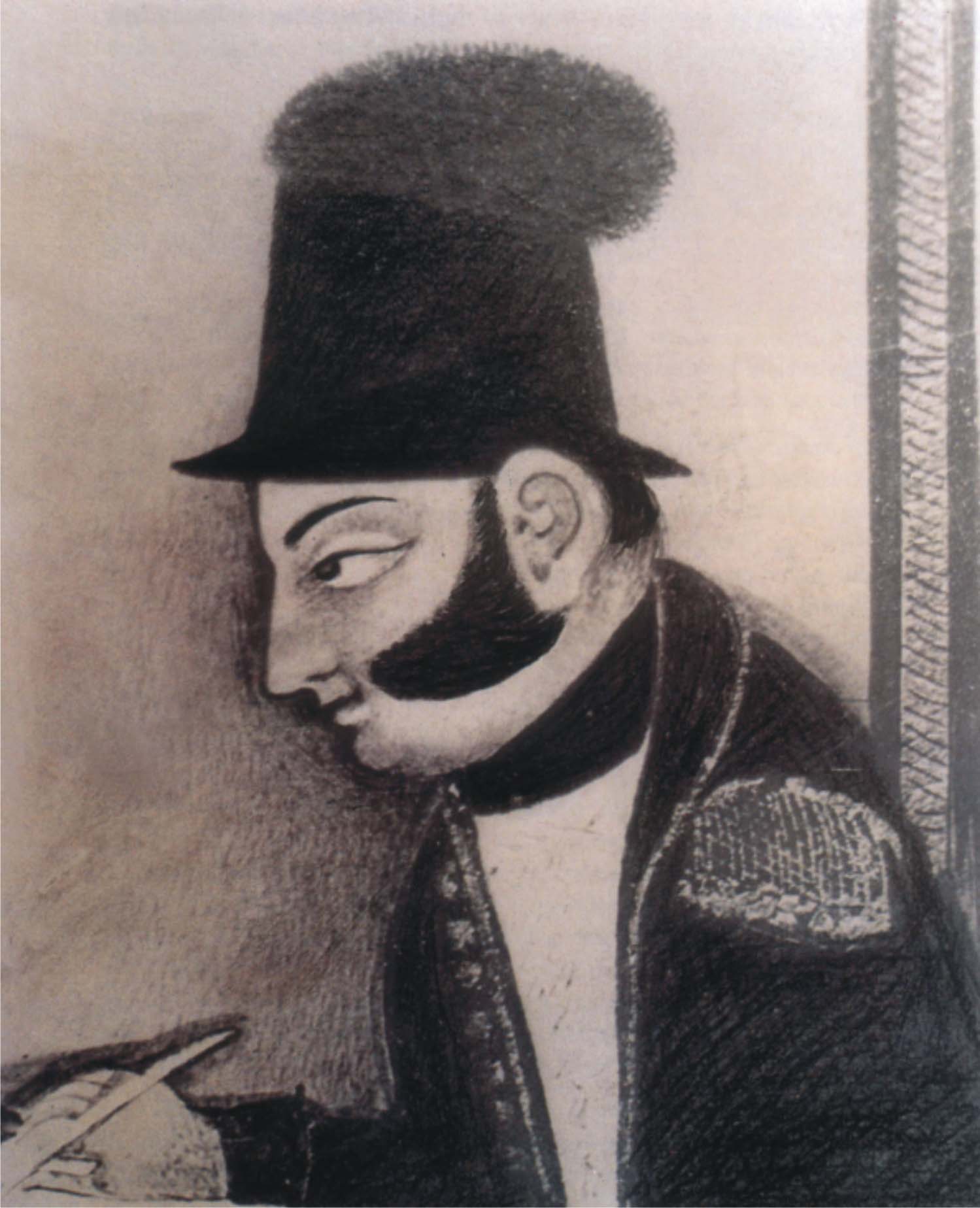Awards
Colonel James Tod Award - (Instituted in 1996-97)
In 1806, Lieutenant-Colonel (then Lieutenant) James Tod first met Maharana Bheem Singh (r.1778-1828 AD) in the outer courtyard of the temple of Shree Eklingji. Colonel Tod was, at that time, Commander of the Escort with Daulat Rao Scindia’s perambulating court. This meeting sparked his interest in the States of Rajputana, and he used his position to acquaint himself wholly with their affairs. Tod was the first to systematically map this region, and his intimate knowledge of the terrain proved extremely useful for the Company’s armies in fighting off Pindari and Maratha incursions into Rajputana from 1817-1818.
On the 13th January 1818, the East India Company and Maharana Bheem Singh executed a treaty of mutual friendship, in which the Company promised to provide military protection to Mewar against hostile forces, and to help reclaim lands that had been usurped. In recognition of his services and experience in Rajputana, Colonel (then Captain) Tod was appointed by Lord Hastings, Governor General, as Political Agent to the Western Rajput States, resident at the court of Maharana Bheem Singh in Udaipur. Colonel Tod’s official charge was to implement the term of the treaty and to manage the affairs and relations of the British East India Company with Mewar. Colonel Tod executed his duties with skill and authority, leading to flourishing conditions in Mewar, as well as a long and vital relationship between Mewar and the Company. In 1822, after four years service in Udaipur, and twenty-two years total in India, Colonel Tod returned to England.
In addition to his official duties, Colonel Tod spent a great deal of his own time and personal resources in the collection of historical documents, inscriptions, bardic accounts and genealogies of the Rajput houses and paintings from Rajasthan. From his residence in the village Dabok, beyond the outer city wall of Udaipur, now near the airport, Colonel Tod began, for the first time, to synthesize the history of Rajputana. Totally immersed in the activities of the Mewar Court, past and present, he developed a deep insight into the stories of courage, heroism, honour and duty within the history of Mewar. During his second visit he was provided with Rampyaribai’s haveli as his residence. Upon his return to England Colonel Tod continued his research, culminating in the publication of the now-classic Annals and Antiquities of Rajasthan (2 vols., 1829, 1832). In this seminal work, Colonel Tod produced the first encyclopedic and comprehensive history of Rajasthan. His lesser-known work, Travels in Western India (published posthumously in 1839), chronicles his final days in India travelling from Udaipur to Bombay, via Mount Abu. This interesting and as yet under-appreciated work is also the first to provide in-depth descriptions of the religious life and customs of the Bhil and Mina hill tribes of Southern Rajasthan.
Colonel Tod’s reliance on oral bardic accounts of Mewar’s history preserved a valuable, yet vulnerable, corpus of historical source material. In doing so, many say that Colonel Tod is responsible for globally recognising the Rajputs, and especially Mewar. The true value of his work lies in the preservation, in perpetuity, of this grand story for everyone, not only India but the whole world.
His late Highness Maharana Bhagwat Singh Mewar established Maharana of Mewar Charitable Foundation ”to serve society and assist man to realise his special status in the hierarchy of God’s creations”. Colonel Tod introduced his Annals in the following way: ”To see humanity under every aspect, and to observe the influence of different creeds upon man in his social capacity, must ever be one of the highest sources of mental enjoyment”. (Annals and Antiquities of Rajasthan (1832 II.vii).
It is in the spirit of these like-minded men, centuries apart, that this International Award has been instituted. Colonel James Tod Award is an International Award. This award has been instituted to honour a foreign national who, like Tod, has contributed through his works of permanent value an understanding of the spirit and values of Mewar.
This International Annual Award consists of:
1. A Ceremonial Shawl.
2. A ‘Toran’ plaque of honour.
3. A Citation Certificate.
4. Cash award of ₹ 2,11,001



